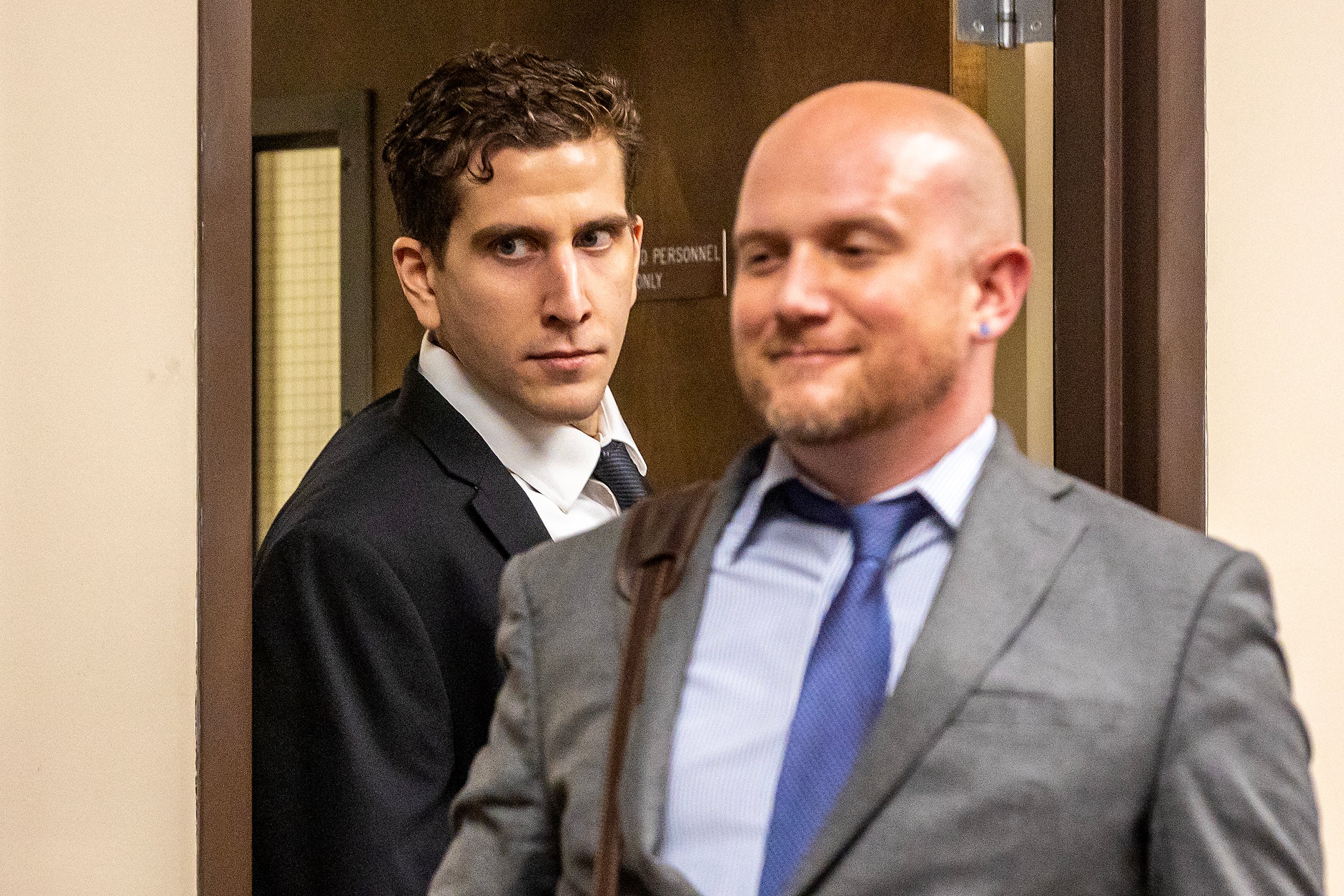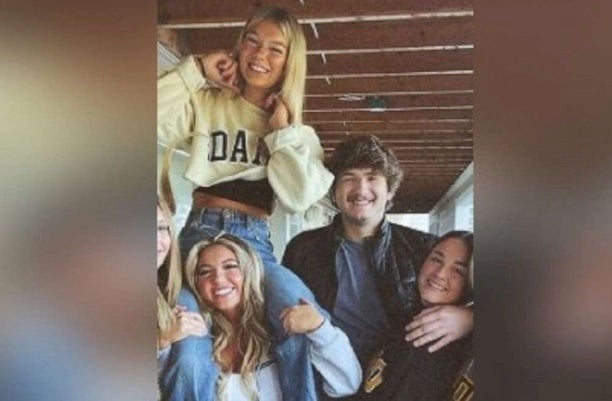Bryan Kohberger defence hints at alibi in Idaho murders - but won’t reveal what it is as deadline passes
Bryan Kohberger’s defence has sought to undermine the evidence against the accused killer, claiming that the DNA evidence tying him to the brutal murders may have been planted
Bryan Kohberger has hinted that he has evidence placing him in another location at the time of the University of Idaho murders – but has stopped short of revealing where as the deadline for him to submit an alibi to the court passed.
In a filing in Latah County Court on Monday, attorneys for the 28-year-old criminology PhD student suggested that he has an alibi for the night of 13 November which may come to light at trial.
“Mr. Kohberger’s defense team continues investigating and preparing his case,” the documents state.
“Evidence corroborating Mr. Kohberger being at a location other than the King Road address will be disclosed pursuant to discovery and evidentiary rules as well as statutory requirements.
“It is anticipated this evidence may be offered by way of cross-examination of witnesses produced by the State as well as calling expert witnesses.”
His attorney added that he has a “Constitutional right to silence as well as to testify on his own behalf”.
The defence’s court filing came just ahead of the deadline for the accused mass killer to offer an alibi in the case that sent shockwaves across America.
Under Idaho law, defendants have 10 days to provide a written statement about where they claim to have been at the time of the alleged crime and offering information about any witnesses who can support their claim.
On 23 May – one day after he was arraigned on four murder charges – Latah County Prosecutor’s Office put in a demand for Mr Kohberger’s notice of alibi.
Back then, Mr Kohberger’s legal team asked Judge John Judge for an extension to this deadline, saying that they needed more time due to the wealth of evidence in the high-profile case.
The judge extended the deadline to 24 July.
While his alleged alibi remains under wraps for now, Mr Kohberger’s defence has sought to undermine the evidence against the accused killer, claiming that the DNA evidence tying him to the brutal murders may have been planted at the crime scene.

In a recent filing in Latah County Court, he suggested that police officers could have somehow placed his DNA on the knife sheath which was left behind by the killer at the college rental home in Moscow, Idaho.
“The State’s argument asks this Court and Mr Kohberger to assume – is that the DNA on the sheath was placed there by Mr Kohberger, and not someone else during an investigation that spans hundreds of members of law enforcement and apparently at least one lab the State refuses to name,” Mr Kohberger’s attorneys wrote.
Prosecutors fired back at the suggestion that the evidence was “rigged”, writing in a filing that “the State is at a loss as to how that theory supports a claim that the lGG information is material to the preparation of his defense”.
Mr Kohberger was tied to the 13 November murders of Madison Mogen, Kaylee Goncalves, Xana Kernodle and Ethan Chapin through a knife sheath left at the scene.
The sheath – for a military or Ka-Bar style knife – was found partly under Mogen’s body after she and Goncalves were found stabbed multiple times on Mogen’s bed on the third floor of the home.
DNA on the button clasp of the sheath was then found to match that of the 28-year-old accused killer.
Mr Kohberger’s attorneys have sought to cast doubts on the strength of this DNA evidence, in particular the use of genetic genealogy.
According to the affidavit in the case, the FBI used genetic genealogy databases to try to identify the DNA source.
Trash was then collected from the suspect’s parents’ home in the Poconos Mountains and a familial match – from Mr Kohberger’s father – was made to the sheath, according to the criminal affidavit.
Following Mr Kohberger’s arrest on 30 December, DNA samples were then taken directly from the suspect and came back as “a statistical match”, say prosecutors.

Mr Kohberger faces the death penalty if convicted of the murders of Goncalves, 21, Mogen, 21, Kernodle, 20, and Chapin, 20.
He is scheduled to stand trial on 2 October after being indicted by a grand jury on four counts of first-degree murder and one burglary charge.
Mr Kohberger is accused of breaking into an off-campus student home on King Road in the early hours of 13 November and stabbing the four students to death with a large, military-style knife.
Two other female roommates lived with the three women at the property and were home at the time of the massacre but survived.
One of the survivors – Dylan Mortensen – came face to face with the masked killer, dressed in head-to-toe black and with bushy eyebrows, as he left the home in the aftermath of the murders, according to the criminal affidavit.
For more than six weeks, the college town of Moscow was plunged into fear as the accused killer remained at large with no arrests made and no suspects named.
Then, on 30 December, law enforcement suddenly swooped on Mr Kohberger’s family home in Albrightsville, Pennsylvania and arrested him for the quadruple murders.
The motive remains unknown and it is still unclear what connection the WSU PhD student had to the University of Idaho students – if any – prior to the murders.
However, the affidavit, released in January, revealed that Mr Kohberger was tied to the killings through his DNA on the knife sheath, surveillance footage showing his white Hyundai Elantra close to the crime scene and cellphone activity.
The murder weapon – a fixed-blade knife – has still never been found.

As a criminal justice PhD student at WSU, Mr Kohberger lived just 15 minutes from the victims over the Idaho-Washington border in Pullman.
He had moved there from Pennsylvania and began his studies there that summer, having just completed his first semester before his arrest.
Before this, he studied criminology at DeSales University – first as an undergraduate and then finishing his graduate studies in June 2022.
While there, he studied under renowned forensic psychologist Katherine Ramsland who interviewed the BTK serial killer and co-wrote the book Confession of a Serial Killer: The Untold Story of Dennis Rader, the BTK Killer with him.
He also carried out a research project “to understand how emotions and psychological traits influence decision-making when committing a crime”.
Subscribe to Independent Premium to bookmark this article
Want to bookmark your favourite articles and stories to read or reference later? Start your Independent Premium subscription today.




